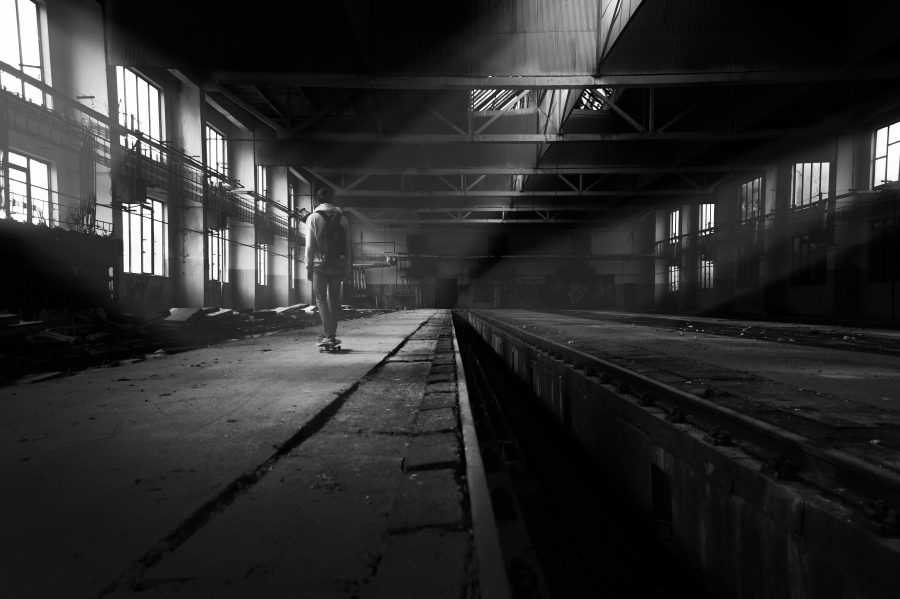The world has been pretty dire in recent weeks.
Seemingly out of the blue, the hard-earned gradual improvements that is human affairs came to a sudden chaotic stop. At times, this looked like the movies: ceased production, abandoned public spaces, supply lines disrupted, airplanes grounded, stock markets crashed, supermarket shelves empty of basic necessities and companies letting their employees go – capitalism paused in its tracks; society put on hold.
It didn’t take long before the usual voices hostile to capitalism smugly pointed to the fragility of our times. See how vulnerable your globalized markets are, how delicate is your extensive division of labor! A capitalism unable to withstand the shock of a viral disease of cold-like symptoms didn’t impress. If this nasty business is capitalism’s blind spot, perhaps this is socialism’s hour?
As usual, the promoters of such arguments forget to ask the crucial economic question: compared to what? The socialist utopia of omniscient planners who could have optimally directed our economic efforts exists only in the quixotic minds of those so ideologically blinded by their desires that nothing else matters.
There are ways of societal organization that would avoid pandemics like COVID-19, few of them desirable. One route would abolish private property, return to the farms, and re-establish Rousseau’s mythical dream-world of noble savages and close-nit local communities. Without industrial machines and people crisscrossing the world, without supply chains longer than a single person can monitor from his (yes, his) farm cottage, without crowded and hyper-productive cities, a disease like the one we’re facing would not spread far.
But many others would – particularly the ones that humanity have long since mastered: smallpox, measles, cholera, plagues.
Of the few people that would survive in such a horrendously unproductive and poor world, most would be safe from contracting this coronavirus, most people’s back-breaking pre-industrial work unaffected by the disrupted supply chains currently experienced by societies that have abandoned their normal work places.
But it’s hardly a price worth paying. The very mechanisms that allow for viral diseases to quickly embrace the whole world are the same that made us immeasurably wealthy: extensive division of labor and global capitalism.
It’s both odd and wrong to think about societies’ fragilities without regard to the standards of living that they allow. Before the 1820s nobody had ever traveled faster than a horse could carry them, but nobody in their right mind would praise the virtues of that world merely because car travel may involve congested traffic and the small risk of personal injury.
A world of subsistence farmers with little connection to outsiders would be fairly immune to the rapid spread of this disease, but their maintained existence would be much less guaranteed, much more vulnerable to the whims of nature, much less affluent.
Only on a very superficial level does globalized large-scale division of labor and its accompanying global financial system look frail. In recent weeks, the largest car and truck manufacturers closed their production, partly because a couple of crucial components could no longer be sourced from their suppliers. A shock like this one takes offline much of our breathtaking capacity to produce most things. It transmits its nasty echoes across the world, wreaks havoc, shortages, and despair among innocent people everywhere, from London to Lombardy, from Wuhan to Washington.
On a deeper level, this vast division of labor is showing itself to be remarkably resilient.
Toilet paper producers ramped up production, capitalist exporters meeting the rapid demand. Aviation producers like Rolls Royce and Airbus began producing ventilators hugely demanded by hospitals – as did U.S. car manufacturers. Vodka companies revamped their supply lines to make hand sanitizers, as did chemistry departments in the world’s universities and the perfume and luxury goods manufacturer LVMH. Factories that usually produce iPhones redeployed their efforts to make face masks. The mad urge to obliterate plastic has been rapidly overturned.
Matt Ridley writes in his forthcoming book How Innovation Works, that
the main theme of human history is that we become steadily more specialized in what we produce, and steadily more diversified in what we consume: we move away from precarious self-sufficiency to safer mutual interdependence.
Paradoxically, self-sufficiency – the kind of subsistence living that protects you from global pandemics or financial crises – is precarious. Local risks like storms, harvest failures, or forest fires cannot be dealt with by drawing on resources from elsewhere.
In contrast, depending on others via lengthy global supply chains exposes us to occasional shortfalls of specific goods and relative price changes when storms or viruses knock out some production. But price systems and capitalist entrepreneurs work hard to find more, to adapt, to substitute, and to create the very resources most urgently needed.
Indeed, they work harder, better, faster and stronger than any other system we know. Riding out storms and sharing risks across billions of people is a feature, not a bug, and the affluent capitalist nature of our institutions puts us in a better position to deal with them.








